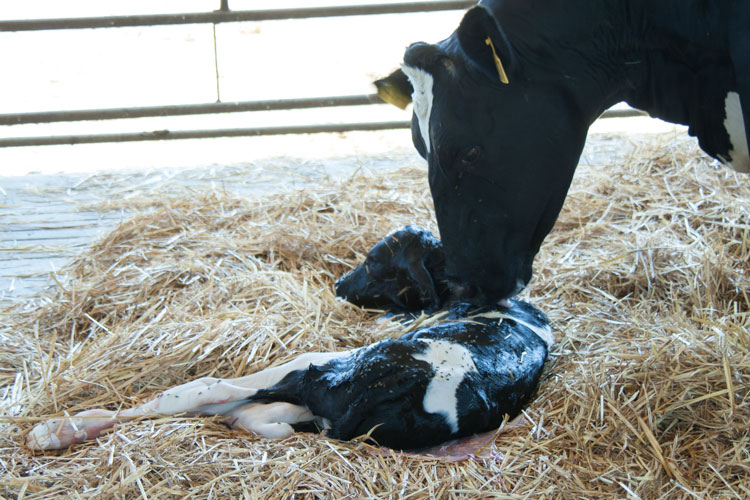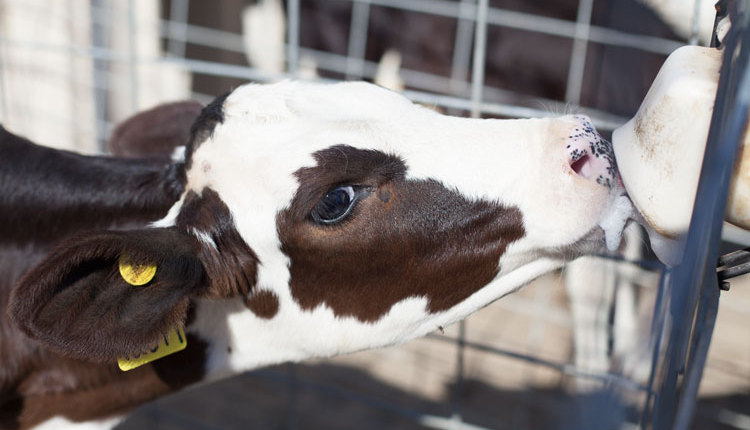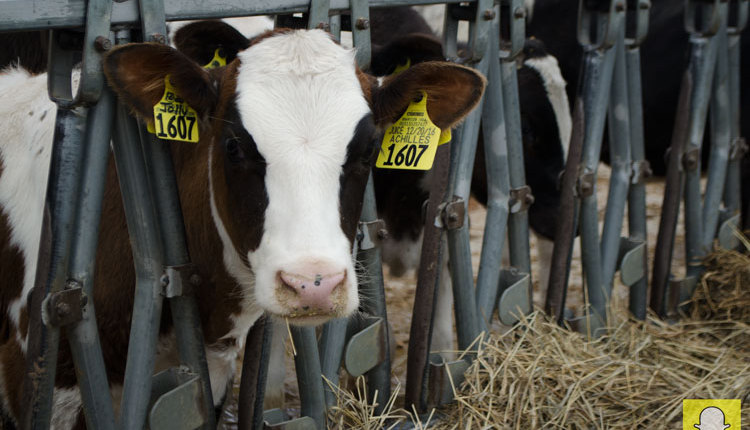
Spring has finally made its debut, but with it comes some pesky insects, the most common being flies. As the weather starts to warm up – significantly here in Oklahoma – house and stable flies have begun to emerge, bringing with them bacteria, pathogens, and disease-causing agents. Though these insects have a relatively brief life cycle, ranging from 10 to 21 days, they can produce between 200 and 600 eggs, which can lead to high population levels in a short amount of time. These nuisances are most likely located around calf hutches, feedbunks, water tanks, manure storage, and hospital and maternity areas, and they thrive in moist organic matter.
Though having some flies is inevitable on dairy operations, it’s important to manage numbers. In order to do that, we should monitor the population to help determine the best treatment method.
The “milk jug” method utilizes a minimum of five plastic gallon-sized containers with four 2-inch holes cut out on each side. These jugs are filled with fly bait and hung from the rafters or ceiling with stiff wire to minimize movement. One should leave these containers out for seven days before counting the number of flies collected. If the average fly number is above 250 per week, it may be time to employ the fly treatment best suited to your operation.
The “spot card” method is also an inexpensive way to monitor fly numbers. Place a minimum of five white index cards in areas where flies can commonly be found. Flies are attracted to the color white and will use the card as a resting area. Just like the “milk jug” method, leave these cards out for seven days before counting the number of defecation and regurgitation spots found on the paper. If the number averages above 100 spots per week, it is time to take action.
Even relatively low numbers of flies can cause an economic injury to producers. Because of these pests, milk production and average daily gain numbers can drop. Therefore, monitoring fly numbers can be an effective tool to help optimize the efficiency of your operation.
Taylor Leach grew up on her family’s dairy farm in Linwood, Kansas. Leach graduated with an associate’s degree from Kansas City Kansas Community College and now attends Oklahoma State University, majoring in animal science and agriculture communications. On campus, she is a member of the dairy club and also works on the university's dairy farm. Leach was the 2016 Hoard’s Dairyman summer editorial intern.








